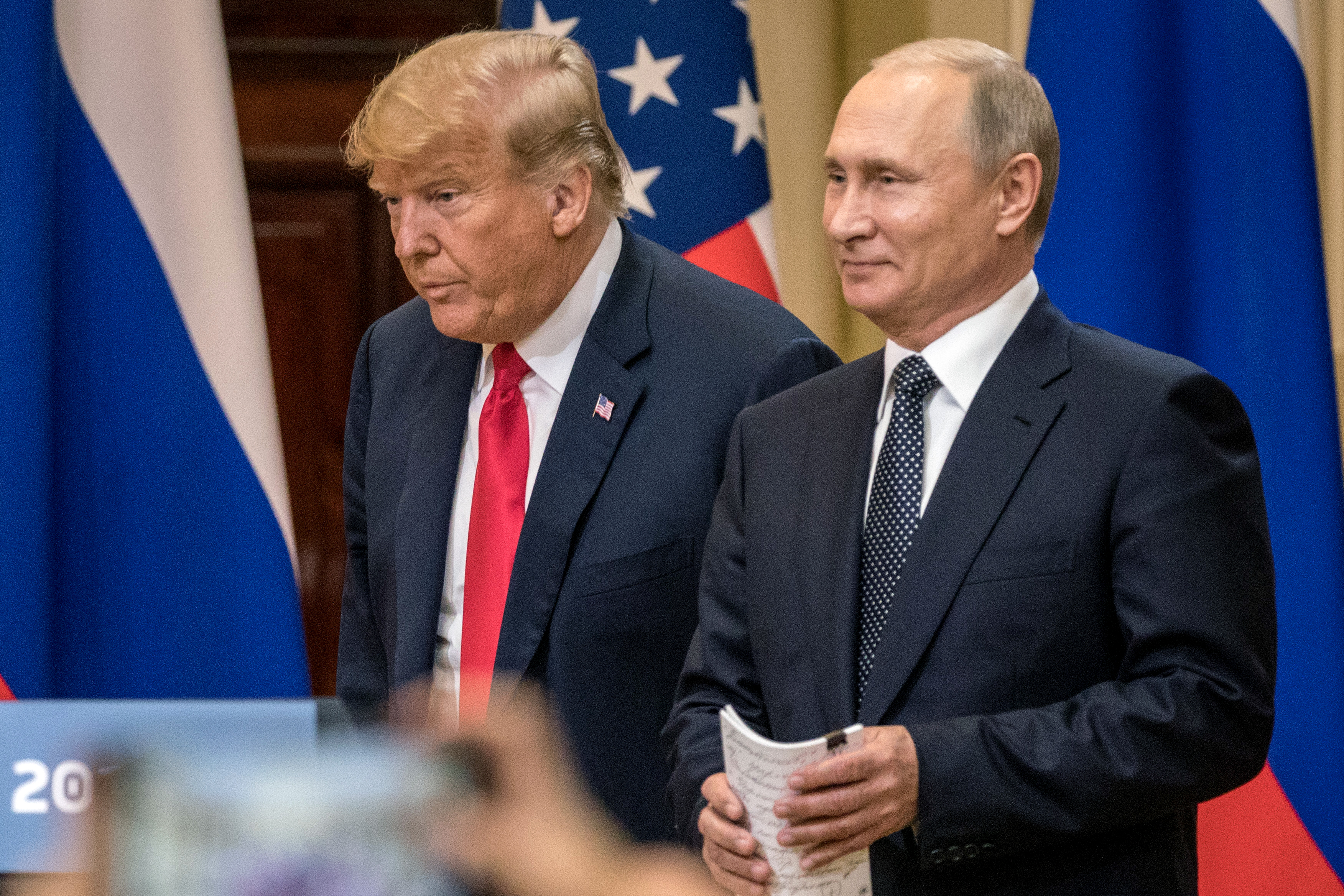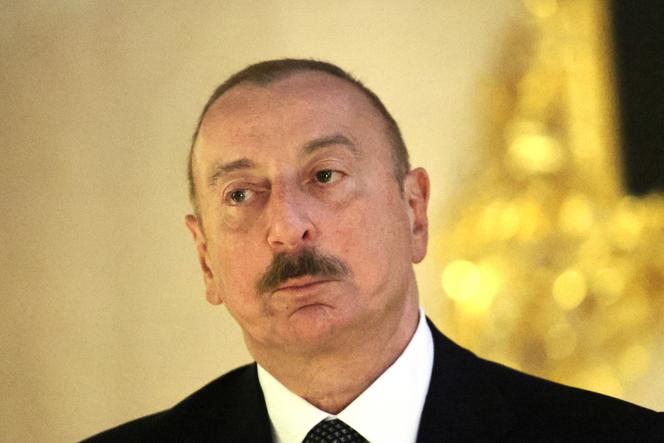Trump's Impact On US And European Pressure On Russia Regarding Ukraine

Table of Contents
Trump's Ambivalent Stance Towards NATO and Transatlantic Relations
Trump's approach to foreign policy, particularly his relationship with NATO and European allies, significantly impacted the collective pressure on Russia concerning Ukraine. His administration's actions often undermined the established framework of transatlantic cooperation, creating divisions and weakening the unified front necessary to counter Russian aggression.
Weakening of NATO Unity
Trump's repeated questioning of NATO's value and the commitment of member states significantly weakened the alliance's unity. His consistent criticisms of allies' defense spending, often publicly voiced, sowed discord and created uncertainty about the reliability of the US as a security partner.
- Trump's questioning of Article 5: His public questioning of the alliance's core principle of collective defense (Article 5) sent a clear signal to potential adversaries, including Russia, that the US commitment to its allies might be wavering.
- Reduced US military exercises: A decrease in joint military exercises with NATO allies signaled a reduced level of US commitment to collective defense, potentially emboldening Russia.
- Withdrawal from the INF Treaty: The withdrawal from the Intermediate-Range Nuclear Forces Treaty in 2019 further strained relations with allies and removed a key element of arms control, potentially increasing European vulnerability to Russian aggression.
Strained US-EU Relations
Beyond NATO, Trump's confrontational approach towards European leaders and his initiation of trade disputes further complicated the effort to maintain a unified front against Russia. This transatlantic rift made it considerably harder to coordinate sanctions, diplomatic initiatives, and other measures to counter Russian actions in Ukraine.
- Trade tariffs and disputes: The imposition of tariffs on European goods created resentment and diverted attention and resources away from the shared challenge posed by Russia.
- Criticism of the EU: Trump's frequent public criticism of the European Union as an entity further weakened the transatlantic alliance and hampered collective action.
- Difficulty in coordinating sanctions: The lack of trust and cooperation between the US and EU under Trump made it challenging to implement and enforce effective sanctions against Russia.
Changes in US Sanctions Policy Under Trump
The Trump administration's approach to sanctions against Russia also played a crucial role in shaping the overall pressure exerted on Moscow. While sanctions remained in place, their enforcement and application were often inconsistent, leading to concerns about their effectiveness.
Limited Sanctions Enforcement
Despite numerous sanctions imposed on Russia for its annexation of Crimea and its actions in eastern Ukraine, there were instances where the Trump administration appeared hesitant to fully enforce them or even delayed their implementation. This perceived weakness arguably diminished the deterrent effect of sanctions.
- Delay in imposing sanctions: In some cases, the imposition of sanctions was delayed or weakened, potentially signaling a lack of strong commitment to punishing Russian aggression.
- Allegations of insufficient enforcement: Reports and investigations into the enforcement of existing sanctions raised concerns about the Trump administration's resolve to effectively pressure Russia.
- Weakening of existing sanctions regimes: Actions that implicitly or explicitly weakened the impact of pre-existing sanctions regimes reduced the overall pressure on Russia.
Direct Engagement with Russia
Trump's frequent meetings and communications with Vladimir Putin generated significant controversy. While direct engagement could potentially offer avenues for de-escalation, critics argued that Trump's approach lacked sufficient leverage and demonstrated a willingness to make concessions that undermined the interests of Ukraine and its allies.
- Helsinki Summit Controversy: The 2018 summit in Helsinki, where Trump appeared to side with Putin over US intelligence agencies regarding Russian interference in the 2016 election, severely damaged his credibility and undermined US credibility within NATO.
- Lack of strong response to Russian aggression: Critics argued that Trump's direct engagement with Putin did not result in concrete measures to address Russian aggression in Ukraine.
- Perceived concessions to Russia: Trump's actions and statements were often interpreted as concessions to Russia, weakening the pressure on Russia and potentially emboldening further aggression.
Impact on European Pressure on Russia
Trump's policies significantly shifted the burden of countering Russian aggression towards European allies. This increased pressure on the EU forced a reassessment of its foreign policy and its relationship with the United States.
Increased Burden on European Allies
With the US perceived as less reliable under Trump, European allies were forced to shoulder a disproportionate share of the responsibility for confronting Russia's actions in Ukraine. This presented both challenges and opportunities for European integration and foreign policy autonomy.
- Increased military spending: European nations increased their defense spending to compensate for the perceived lack of US commitment.
- Enhanced European defense cooperation: The need to counter Russian aggression accelerated efforts towards greater European defense cooperation.
- Strengthened EU sanctions: The EU independently strengthened its own sanctions regime against Russia.
Varying European Responses to Trump's Policies
European countries responded to Trump's policies in varying ways, reflecting diverse national interests and perspectives. Some countries maintained a strong stance against Russia despite US shifts, while others adjusted their policies in response to Trump's actions.
- Countries maintaining a strong anti-Russia stance: Countries like the UK, Poland, and the Baltic states continued to prioritize a strong stance against Russia, irrespective of US policy changes.
- Countries adopting a more cautious approach: Other European countries adopted more cautious approaches, prioritizing economic ties with Russia over confrontation.
- EU's independent foreign policy: The need to adapt to the changing US foreign policy landscape pushed the EU towards a more independent and assertive foreign policy.
Conclusion
Trump's presidency presented a complex and multifaceted challenge to the international effort to pressure Russia regarding its actions in Ukraine. His ambivalent stance towards NATO, strained US-EU relations, and arguably less forceful sanctions policy undoubtedly created difficulties in maintaining a unified and effective response. While direct engagement with Putin offered a different approach, its overall effectiveness in addressing the Ukrainian conflict remains debatable. Understanding the impact of Trump's policies on the Trump Russia Ukraine Pressure is crucial for future strategies in addressing geopolitical challenges and maintaining effective international cooperation. To further your understanding of this complex issue, consider researching the specifics of sanctions imposed during the Trump administration and their effectiveness against Russia's aggression in Ukraine. Continue your exploration of Trump Russia Ukraine Pressure by researching independent analyses and reports.

Featured Posts
-
 Ilta Sanomat Eurojackpotin Viimeisimmaet Tulokset
May 14, 2025
Ilta Sanomat Eurojackpotin Viimeisimmaet Tulokset
May 14, 2025 -
 Bianca Censori And Kanye West A Recent Sighting In Spain Fuels Reunion Rumors
May 14, 2025
Bianca Censori And Kanye West A Recent Sighting In Spain Fuels Reunion Rumors
May 14, 2025 -
 Ted 2 The Series Coming To Peacock Starring Mark Wahlberg
May 14, 2025
Ted 2 The Series Coming To Peacock Starring Mark Wahlberg
May 14, 2025 -
 Spanish Media Ignites Debate Should Israel Be In Eurovision
May 14, 2025
Spanish Media Ignites Debate Should Israel Be In Eurovision
May 14, 2025 -
 Oqtf Le Choc Des Camarades Apres L Expulsion De Deux Amis Et De Leur Mere
May 14, 2025
Oqtf Le Choc Des Camarades Apres L Expulsion De Deux Amis Et De Leur Mere
May 14, 2025
